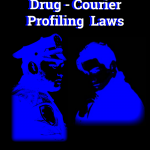Recently, an Arizona appellate court addressed the lower court’s new changes in procedure made in response to the Covid-19 public health emergency. The appellate court denied a defendant’s challenges to these changes, which included the option for potential jurors to appear by video instead of in-person and the decrease in peremptory strikes during jury selection.
The Facts of the Case
While traveling on a highway in a pickup truck, the defendant was stopped by law enforcement for a mud flap violation. The defendant consented to a dog sniff, which led to the officers finding drugs in the truck. The defendant filed a motion to suppress the drugs being used as evidence against him at trial, arguing that he was detained for a time that was longer than necessary for officers to complete the traffic citation. The lower court denied the motion.
While the defendant awaited his trial, the Arizona Supreme Court modified court operations in response to the Covid-19 public health emergency. Typically, in the Arizona jury selection process, each party is allowed up to six peremptory strikes, or in other words the ability to choose up to six individuals who they would like to excuse from serving on the jury. In response to the pandemic, the Supreme Court decreased the number of peremptory strikes that each party could make, changing it from six strikes to two. Additionally, the Supreme Court authorized the use of technology for virtual jury selection instead of in-person jury selection.
 Arizona Criminal Defense Attorney Blog
Arizona Criminal Defense Attorney Blog
















